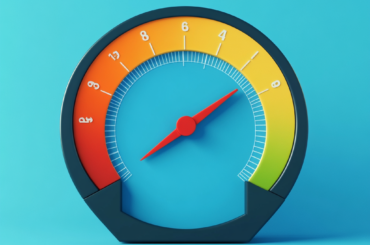When life throws unexpected expenses your way, finding the right emergency loan can feel daunting—especially with bad credit. In this listicle, you’ll discover top lenders that offer flexible terms and quick approvals tailored to your needs!
In 2025, Citizens Bank offers competitive rates on their Home Equity Line of Credit (HELOC), making it an appealing option for borrowers. However, customers frequently report dissatisfaction with customer service, which can leave potential applicants hesitant.
Navigating higher education financing can be daunting. While both financial aid and student loans help cover costs, they differ significantly. Financial aid often includes grants and scholarships that don’t need repayment, while student loans require repayment with interest. Understanding these distinctions is key to making informed choices.
As many students breathe a sigh of relief, the student loan payment pause has been extended again. This decision impacts millions, allowing graduates extra time to navigate their financial futures. Here’s what you need to know to prepare.
It can be hard to deal with credit card debt, but there are ways to get your financial freedom back. These seven simple steps will help you get rid of that debt for good, from making a budget to looking into balance transfer options.
Your FICO score is a specific type of credit score that lenders use to assess your creditworthiness. While all FICO scores are credit scores, not all credit scores are FICO scores. Understanding this distinction can help you manage your financial health more effectively.
Debt collection follows both federal and state rules, and the Fair Debt Collection Practices Act (FDCPA) is one of these. It keeps people safe from unfair and harsh ways of getting money back. The Consumer Financial Protection Bureau (CFPB) and the Federal Trade Commission (FTC) are the ones who check that these laws are
Facing financial difficulty can be overwhelming, but bankruptcy isn't your only option. Explore alternatives like debt consolidation, negotiation with creditors, or developing a strict budget. These strategies can help you regain control without damaging your credit.
Credit cards are a simple way to keep track of your purchases, but they can also be hard to understand, especially when you see terms like “closing date” and “due date” that might not make sense at first. You need to know these dates to manage your money well and avoid paying extra fees. The
Deciding whether to use retirement savings to pay off credit card debt isn't easy. While clearing high-interest debt can provide immediate relief, tapping into retirement funds may lead to penalties and lost growth. Assess your situation carefully before deciding.
Are you feeling stressed out by your student loan payments? These eight practical ways to lower your monthly bills, from refinancing to income-driven repayment plans, will help you breathe a little easier each month.
Graduates often complain about the job market, but it's time to move on. Taking on responsibility can help you grow. Graduates can set themselves up for success by working on their personal growth, making connections, and being open to new opportunities.
Looking to secure the best private party auto loan? In this listicle, you’ll discover top lenders and tips tailored for your needs. Expect insights on rates, terms, and how to navigate the process smoothly—so you can finance that dream car hassle-free!
Navigating student loan debt can feel overwhelming, but there are effective strategies to lighten the burden. From exploring income-driven repayment plans to seeking scholarships, these 13 actionable tips can significantly reduce your total student loan debt.
As American consumers face potential price hikes from new tariffs, many are finding creative ways to adapt. From meal prepping to bulk buying and cutting non-essentials, everyday Americans are crafting budgets and making choices to stretch their dollars further.
Offers unsecured loans. You do not need to give anything as security. Fixed interest rates go from 6.49% to 25.14% APR if you use AutoPay. If your loan gets approved, you can get the money the same day. You can borrow from $5,000 up to $100,000. There are no fees to start the loan,
Feeling financially lost can be overwhelming. In chaotic times, it’s crucial to regain clarity. From mindfulness practices to creative budgeting, explore nine surreal tactics that can help you navigate uncertainty and regain control of your financial future.
Building good credit isn’t an overnight process—it typically takes three to six months to establish a solid score. However, achieving excellent credit can take years. Patience, consistent payments, and responsible credit use are key to your credit journey.
Preparing for a recession begins with assessing your finances. Create a budget, cut unnecessary expenses, and build an emergency fund. Diversifying your income sources can also provide stability. Taking proactive steps now can help safeguard your future.
Marriage and debt can be a challenging combo, but it doesn’t have to be. Start by communicating openly about finances, creating a shared budget, prioritizing debt repayment together, and celebrating your progress. Together, you can turn struggles into strength.
Looking for the best credit card in Australia? You're in the right place! This listicle dives into top options tailored to your needs, from rewards programs to low interest rates. Discover which card suits your lifestyle and maximizes your benefits!
Looking to improve your financial game? In this listicle, you’ll discover the best credit cards tailored for a 600 credit score. From cashback perks to rebuilding strategies, you'll find options that fit your needs and help boost your credit journey!
How Late Payments Affect Your Credit Score One of the most important numbers in your financial life is your credit score. It can affect your ability to get loans, get a place to live, and even the cost of borrowing. But a lot of people don't know what affects this score or how even small
As tax season approaches, be vigilant about the “Dirty Dozen” tax scams that can catch even the most careful taxpayers off guard. From phishing emails to aggressive schemes promising refunds, awareness is your best defense in protecting your hard-earned money.
Navigating student loan deferment in grad school can feel daunting. Essentially, deferment allows you to pause payments on your loans while you focus on your studies. Understanding eligibility criteria and application processes is key to making this work for you.
Fashion Debt in the United States Fashion debt is more common than many people think. It happens when people keep buying clothes and other fashion items, spending more than what they earn. Reports show that people often spend a lot on clothes and this can put stress on their money and how they manage their
Americor Debt Relief stands out for its high customer satisfaction, with many clients praising their supportive approach. However, potential users should note that their fees are above average, which could impact overall savings in debt resolution.
The recent House policy bill, projected to add $3.4 trillion to the national debt, raises concerns about long-term economic stability. While it aims to spur growth, critics warn the strain on finances could overshadow any immediate gains.
Removing a bankruptcy from your credit report early is challenging but not impossible. Start by checking your report for errors; inaccuracies can be disputed. Consider negotiating with creditors or seeking professional help to improve your credit standing.
When considering home equity options, it's essential to understand the differences. A Home Equity Loan (HEL) offers a lump sum, while a Home Equity Line of Credit (HELOC) provides flexibility with a credit line. Alternatively, a Cash-Out Refinance lets you take cash while refinancing your mortgage.





























